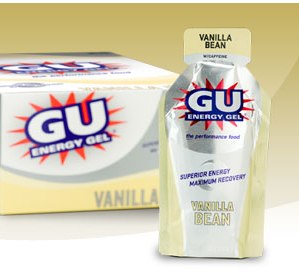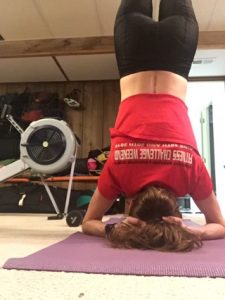
 I started distance running in 2008 when one of my BFFs talked me into running the Greenville Spinx Half Marathon. After that race (and learning what it meant to be sub-2), I was hooked and promptly signed up for my first marathon which was the B&A Marathon in March 2009. I’ve now racked up a total of 13 marathons over the last 10 years, the most recent having been the epic bad weather Boston Marathon. Needless to say over the course of 13 marathons, I’ve come up with a list of things I’d tell my younger running self.
I started distance running in 2008 when one of my BFFs talked me into running the Greenville Spinx Half Marathon. After that race (and learning what it meant to be sub-2), I was hooked and promptly signed up for my first marathon which was the B&A Marathon in March 2009. I’ve now racked up a total of 13 marathons over the last 10 years, the most recent having been the epic bad weather Boston Marathon. Needless to say over the course of 13 marathons, I’ve come up with a list of things I’d tell my younger running self.
1. Run the Easy Runs Easy
For YEARS I didn’t really know the difference between an easy run or any other run. Some would be all out, sometimes I did speedwork, and of course long runs. I also distinctly recall a year in which I thought if I could always run at a certain pace (let’s call it 8:00 miles), I’d be happy. None of those strategies were right. The easy runs make a HUGE difference. They are in training plans for a reason. Do them. Easy runs will be 30-45 seconds slower than goal pace, maybe even slower. Your body will thank you and your performance on the hard runs will be significantly better.
2. Practice Fueling
 Similar to easy runs, I didn’t take fueling seriously enough for many of my early running years. And in all honesty, I still struggle with it. It’s more than just having water, or electrolytes with you on long runs. It’s knowing the hydration and fueling plan that will work for you at different distances. My last couple years of marathons have included fuel training on long runs which follows a pattern I learned from Coach Scott at Team All American:
Similar to easy runs, I didn’t take fueling seriously enough for many of my early running years. And in all honesty, I still struggle with it. It’s more than just having water, or electrolytes with you on long runs. It’s knowing the hydration and fueling plan that will work for you at different distances. My last couple years of marathons have included fuel training on long runs which follows a pattern I learned from Coach Scott at Team All American:
- Mile 2: water
- Mile 4: electrolytes + water
- Mile 6: Gu + water
- Mile 8: electrolytes + water
- Mile 10: Gu + water
- Keep repeating
3. Do the Speedwork
There’s a million different ways to do speedwork. There’s Track Tuesdays. There’s Yasso 800s. There’s tempo runs. There’s any variation of intervals to be done on #tracktuesday. You have to find the mix that works for you but the important thing is to keep speedwork as part of the training plan. At least one run a week of speedwork will help tell your body and your mind that you can run faster. Even if your goal is just to finish or you don’t have a specific speed goal, do the speedwork. If nothing else, changing up the routine and pushing your body into new ways of running will pay dividends on race day.
4. Mind Over Matter
Know that you have to have mental strength just as much, if not more, than physical strength to get through a marathon. Actually, you need it to get through the training too. Finding mental tricks to keep yourself going is absolutely key on long runs. Some people use mantras, some people try to do math, others rely on music to distract the mind from what the body is experiencing. Ultimately though, plenty of research has shown that the mind will quit long before the body. Don’t let that happen! Know that you are strong and capable. Know that you have the mental fortitude to continue those long runs and cross a 26.2 finish line.
5. Do Yoga
 I’d give anything to have taken every Runner’s World article’s advice about yoga (and strength work) when I first started distance running. I wish I had discovered, enjoyed, appreciated, and stuck with yoga 10 years ago. As it stands, I’m not even a full year into my love affair with yoga. I’m super inconsistent and if I can squeak in 2-3 sessions, even if they are mini-sessions, a week, I know the rewards that yoga gives to my running. Yoga has given me the strength and stretching I typically ignored, and it has also helped significantly with #4 on this list.
I’d give anything to have taken every Runner’s World article’s advice about yoga (and strength work) when I first started distance running. I wish I had discovered, enjoyed, appreciated, and stuck with yoga 10 years ago. As it stands, I’m not even a full year into my love affair with yoga. I’m super inconsistent and if I can squeak in 2-3 sessions, even if they are mini-sessions, a week, I know the rewards that yoga gives to my running. Yoga has given me the strength and stretching I typically ignored, and it has also helped significantly with #4 on this list.
These are my top 5 things I’ve learned from marathon 1 vs marathon 13. Since I can’t tell my younger self these tips, I have to remind my current self to stick with my own lessons learned.
What tips do you have for your younger running self?
